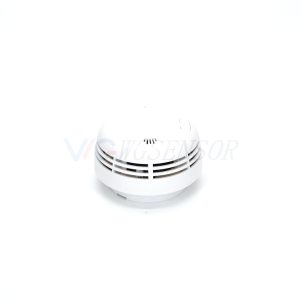In the realm of fire safety, smoke alarms serve as indispensable guardians, alerting us to potential hazards and saving lives. However, recent discussions have surfaced regarding the sensitivity of these crucial devices, raising concerns about their effectiveness in detecting smoke in various environments.
Numerous studies and tests conducted by fire safety experts have shed light on the varying degrees of sensitivity among smoke alarms available in the market. While these devices are designed to detect smoke particles, the variation in their responsiveness to different types of smoke has become a focal point of discussion.
According to industry experts, traditional ionization smoke alarms tend to be more responsive to fast-flaming fires, while photoelectric alarms demonstrate higher sensitivity to slow, smoldering fires. This disparity has sparked debates on whether a single type of alarm can effectively respond to the multitude of fire scenarios encountered in homes, offices, and public spaces.
“The challenge lies in achieving a balance between sensitivity and false alarms,” remarks Dr. Sarah Johnson, a fire safety researcher. “Enhancing sensitivity without compromising accuracy is pivotal in ensuring timely warnings without unnecessary disruptions.”
Moreover, environmental factors such as dust, humidity, and cooking fumes have been identified as potential triggers for false alarms, contributing to concerns about the reliability of these devices in everyday settings.
In response to these concerns, innovators in the field are exploring advanced technologies and hybrid alarm systems that amalgamate the strengths of different detection methods. These systems aim to provide comprehensive coverage, effectively detecting various types of fires while minimizing false alarms.
The significance of heightened sensitivity in smoke alarms cannot be overstated. Timely detection of smoke not only facilitates quicker responses but also provides crucial moments for evacuation and firefighting efforts, significantly reducing the potential for property damage and, more importantly, saving lives.
As debates continue, regulatory bodies are considering revisiting standards to ensure that smoke alarms meet stringent criteria for sensitivity, responsiveness, and reliability across different fire scenarios. Collaborative efforts between industry stakeholders, researchers, and regulatory authorities are crucial in establishing guidelines that prioritize both sensitivity and accuracy in smoke alarm technology.
In conclusion, while discussions on sensitivity persist, the quest for enhanced smoke alarm technology remains a priority. Striking a balance between sensitivity and reliability stands as the cornerstone in fortifying these devices as effective guardians in the realm of fire safety.
<p= align centre>


Please contact us for free quotation by form below. We promise the quickest response within 24 hours: